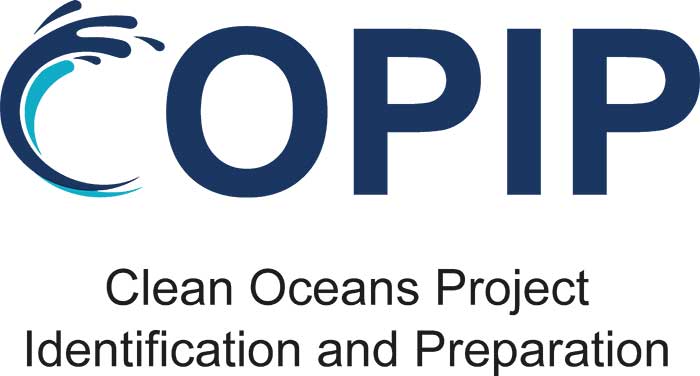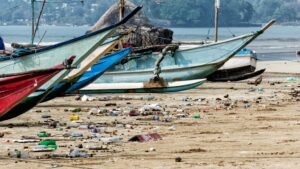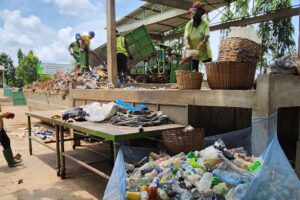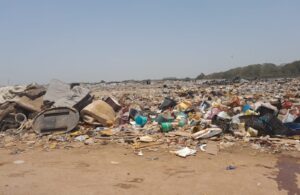COPIP’s vision to transform solid waste management (SWM) in sub-Saharan Africa is progressively becoming a reality. The successful implementation of the source separation pilot project in Likoni and Mvita through collaboration with World Wide Fund for Nature in Kenya (WWF-K) is a demonstration of how to transform ideas and policies into practical interventions in SWM.
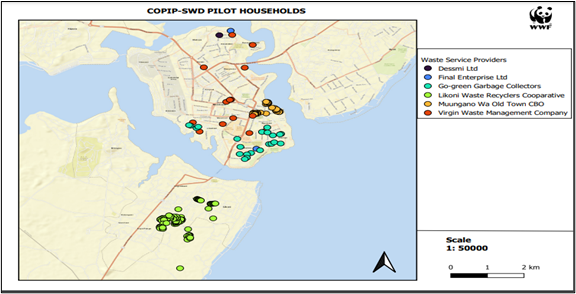
Key findings
Source separation holds great potential to improve material recovery, develop the recycling sector, create green jobs and contribute to environmental conservation. Out of the 50 tonnes of waste collected, organic waste accounted for 50.4%, recyclable materials 24.3% and dumpsite/non-recyclable waste 25.3%. The organic and recyclable fractions were all recovered.
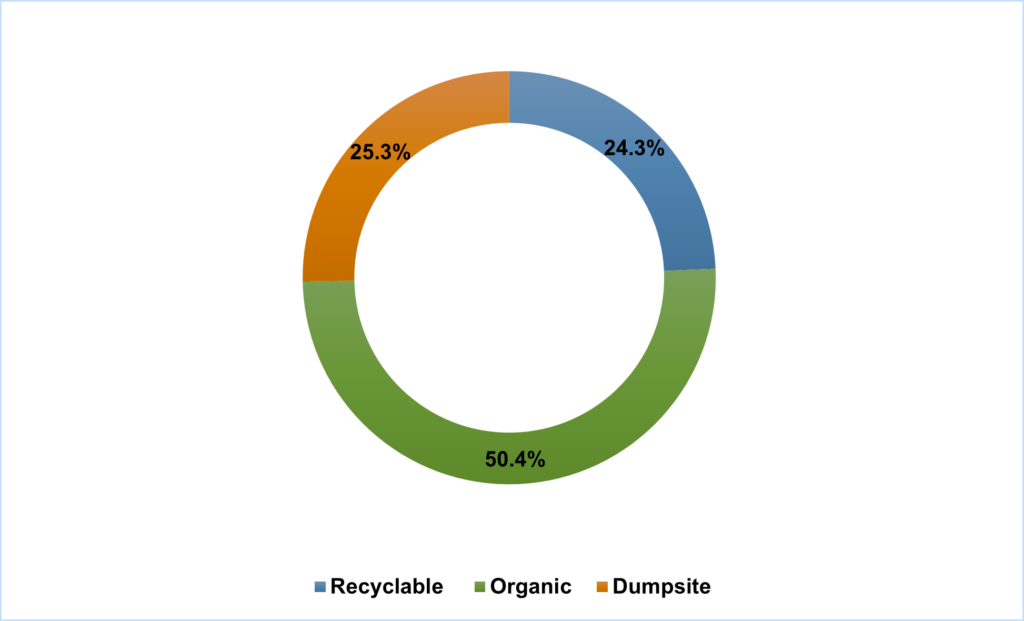
Stakeholder engagement – Households are important stakeholders in source separation of waste as they undertake the sorting and contribute ideas on aspects such as bin sizes, installation and collection schedules. Households are appreciative of source separation contrary to the notion that an improved collection results to an increase in levies. Other key stakeholders are the waste service providers (both formal and informal) and the County Government of Mombasa.
Awareness creation is key to key to ensuring behaviour change and a shift from mixed to separate waste collection. The use of a local theater and play greatly helped to put into context the concept of source separation using local examples and methodologies. Therefore, the COPIP pilot project provided a roadmap for the implementation of the Sustainable Waste Management Act 2022, Extended Producer Responsibility (EPR) 2024 and the Mombasa County Solid Waste Management (Amendment) Act 2023 which emphasise circularity and source separation of waste.
Ongoing work as a result of the pilot project
COPIP pilot project was transformative and it has triggered further interventions in the sector, including:
Likoni Waste Recyclers Association has increased the number of households under separate source collection from 300 (at the beginning of pilot project) to 700 households in June in Timbwani ward, Likoni sub-county.
Go Green Limited set up a mini material recovery facility (MRF) during the pilot project to extend sorting of various recyclables. Before the COPIP pilot project, the company used to collect mixed waste for disposal at the Mwakirubge dumpsite.
Virgin Waste Ltd is running a successful black soldier fly (BSF) facility near Mwakirunge dumpsite due to increased supply of clean organic waste from separately collected waste.
Overall, the findings helped consultants to refine the COPIP Mombasa Solid Waste Circular Economy project components, as well as other projects on COPIP project pipelines across the sub-Saharan Africa. However, challenges still exist, specifically regarding lack of awareness on source separation, investments for bins and bin liners and lack of space within the households to install the equipment.
